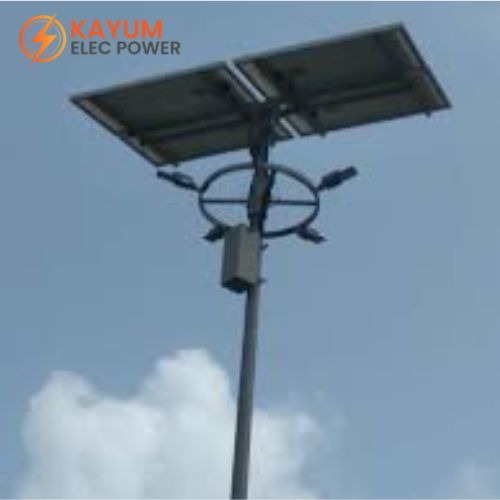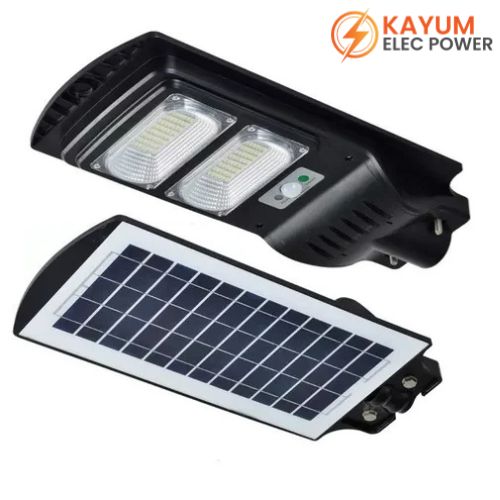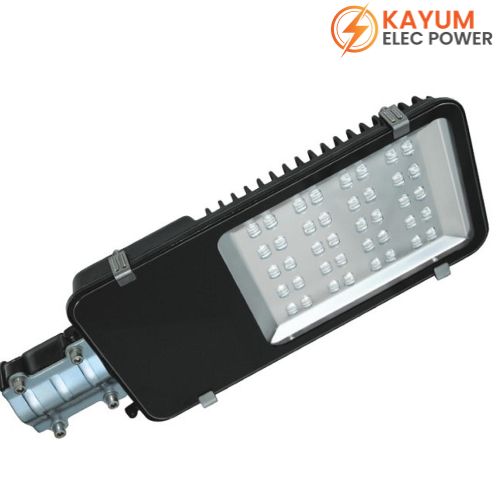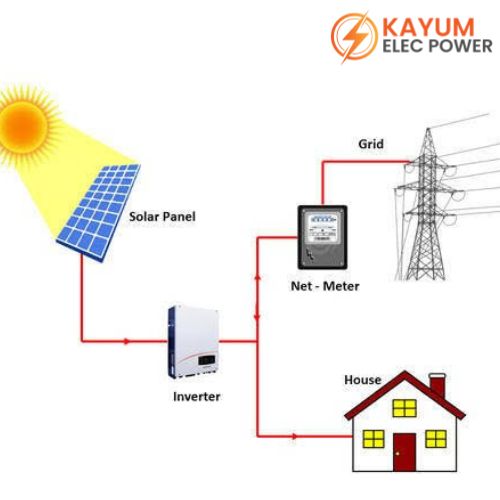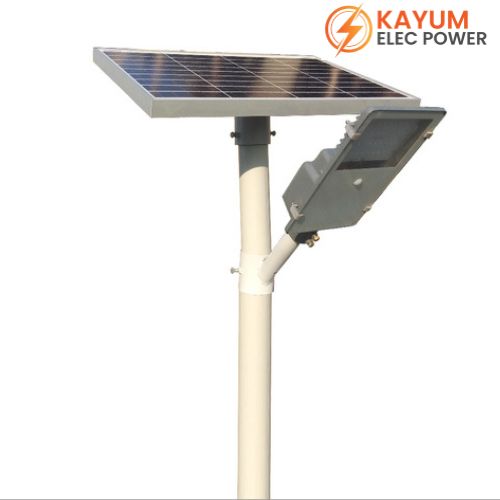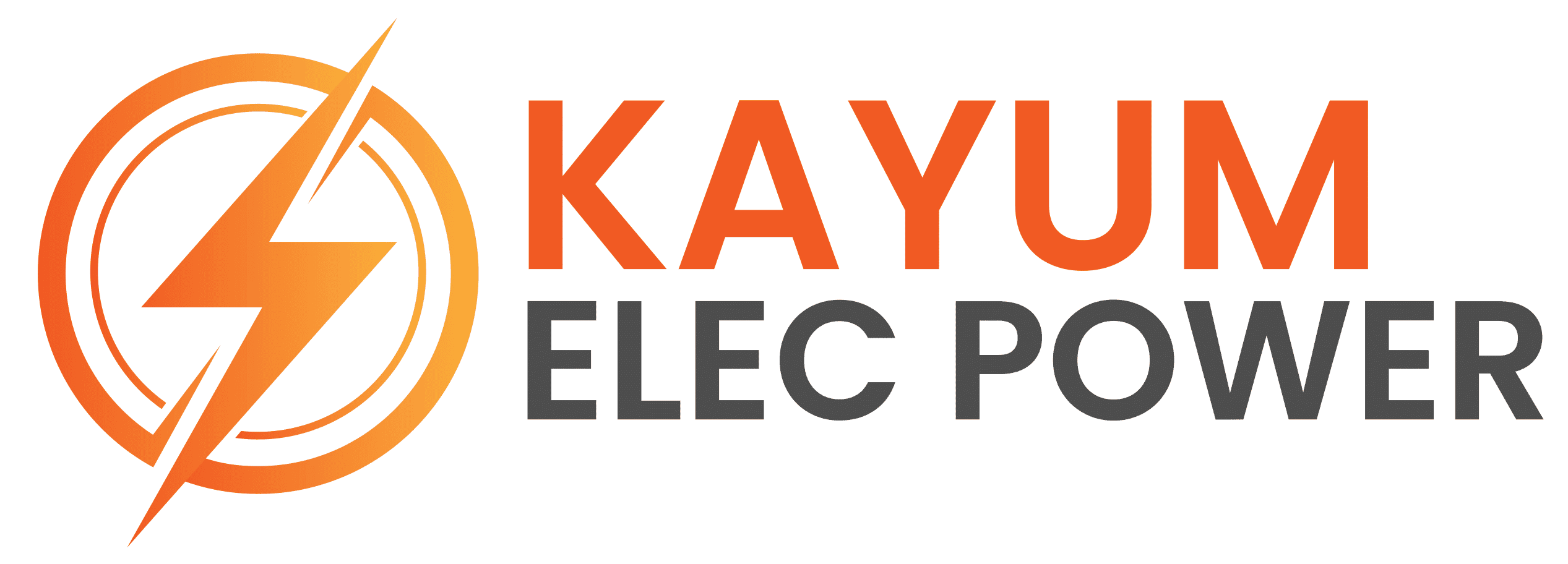Solar Highmast Lighting System Dealer in Chhattisgarh: Kayum Elec Power
In the state of Chhattisgarh, which has seen significant progress in rural electrification and adoption of sustainable energy solutions, solar high mast lighting systems have emerged as a transformative approach to illuminate public spaces. These systems, powered by solar energy, offer dependable lighting for streets, parks, bus stands, and community zones — particularly in remote and underserved regions. This blog explores the value, components, advantages, and implementation considerations of solar high mast lighting systems and their role in safety, growth, and environmental sustainability in Chhattisgarh.
What is a Solar High Mast Light?
A solar high mast lighting system is a tall lighting setup powered by solar energy, designed to illuminate large public areas. These systems consist of key components that work together to provide sustainable lighting without relying on conventional electricity sources.
Key Components:
Solar Panels
Photovoltaic panels that convert sunlight into electricity, enabling the system to operate independently of the main grid.
LED Fixtures
Energy-efficient LED lights that produce bright, uniform illumination across large spaces.
Lithium-Ion Batteries
Rechargeable batteries that store energy collected during the day for use at night, ensuring uninterrupted lighting.
Charge Controller
This regulates the battery’s charging and discharging, protecting it from overcharging or deep discharging.
Pole Structure
Strong, weather-resistant poles that support both solar panels and LED fixtures, ensuring stability in outdoor environments.
Benefits of Solar High Mast Lighting Systems
Installing solar high mast systems in Chhattisgarh provides numerous social, economic, and environmental benefits:
1. Energy Independence
By utilizing solar energy, these systems reduce dependency on the conventional power grid and provide consistent lighting even during outages.
2. Cost Savings
Eliminating electricity bills and having low maintenance requirements result in long-term financial savings.
3. Environmental Impact
Solar systems emit zero greenhouse gases, helping lower carbon footprints and supporting environmental goals.
4. Enhanced Safety and Security
Well-lit areas contribute to reduced crime rates and improved safety for local communities.
5. Low Maintenance
With minimal moving parts and no fuel dependency, solar high mast lights require less upkeep than traditional lighting solutions.
Applications in Chhattisgarh
Solar high mast lights are incredibly versatile and are being utilized across various sectors in the state:
Rural Electrification
These systems bring light to remote villages without grid access, greatly improving living conditions and productivity.
Urban Areas
Cities such as Raipur and Bilaspur benefit from enhanced nighttime safety and urban infrastructure support.
Educational Institutions
Schools and universities install solar lighting systems to brighten campuses during the evenings, supporting academic activities.
Public Events and Festivals
Large gatherings and cultural celebrations utilize high mast lights to provide safety and clear visibility for attendees.
Considerations for Implementation
Before deploying a solar high mast system, the following factors should be evaluated for successful results:
Site Assessment
Analyze sunlight availability and plan pole placements for maximum efficiency.
System Sizing
Calculate the area to be covered and brightness requirements to determine appropriate panel, battery, and fixture capacities.
Quality of Components
Use certified, durable components to ensure long-term reliability and minimal maintenance needs.
Regulatory Compliance
Ensure compliance with local regulations and acquire necessary permits from local authorities.
Community Involvement
Engage the local population in planning and upkeep to foster community ownership and long-term project sustainability.
Frequently Asked Questions (FAQs)
Q1: What is the life span of a solar high mast lighting system?
A: The lifespan depends on usage and component quality. Solar panels last 25–30 years, LED fixtures around 10–15 years, and batteries 5–7 years under normal conditions.
Q2: Can these systems withstand all weather conditions?
A: Yes, solar high mast lighting systems are designed to perform reliably in rain, high winds, and extreme temperatures, ensuring consistent year-round functionality.
Conclusion
Solar-powered high mast lighting offers a clean, efficient, and cost-effective solution for public lighting in Chhattisgarh. Harnessing the sun’s energy, these systems provide consistent illumination while supporting environmental and economic goals. As the region continues to advance its green initiatives and rural electrification efforts, solar high mast lighting plays a pivotal role in shaping a sustainable future. For those seeking a reliable supplier, Kayum Elec Power is a trusted name known for offering high-quality solutions and expert support.
